
Identidade
Scope & Guideline
Unveiling the Layers of Identity Through Scholarly Discourse
Introduction
Aims and Scopes
- Cultural Identity and Representation:
The journal emphasizes the importance of cultural identity, exploring how various communities, particularly Afro-Brazilian and indigenous groups, express their identities through art, religion, and social practices. - Interdisciplinary Approaches to Education:
A significant focus is placed on the development of educational practices that are inclusive of ethnic-racial relations, emphasizing the need for curricula that reflect diverse cultural backgrounds and experiences. - Racial and Social Justice:
The journal addresses issues of racism and social injustice, analyzing historical and contemporary forms of discrimination and proposing ways to combat these through education and awareness. - Religious Practices and Beliefs:
There is a strong emphasis on the study of Afro-Brazilian religions, such as Candomblé and Umbanda, exploring their cultural significance and the role they play in community identity and resistance. - Ethnomathematics and Cultural Knowledge:
The journal promotes the integration of ethnomathematics into educational practices, highlighting the importance of acknowledging and valuing local knowledge systems in mathematics education.
Trending and Emerging
- Decolonial and Anti-Racist Education:
Recent publications are increasingly centered around decolonial approaches to education, emphasizing anti-racist pedagogies that challenge dominant narratives and empower marginalized voices. - Intercultural and Interdisciplinary Curricula:
There is a growing trend towards developing intercultural curricula that incorporate diverse cultural perspectives, particularly those of Afro-Brazilian and indigenous communities, reflecting a commitment to inclusivity in education. - Social Movements and Public Policies:
An emerging focus on the role of social movements in shaping public policies related to race and identity, indicating a recognition of the importance of activism in the academic discourse. - Cultural Practices and Community Resilience:
There is an increased interest in exploring cultural practices as forms of resistance and resilience within communities, particularly in the context of Afro-Brazilian religions and traditions. - Ethnomathematics and Cultural Relevance in STEM:
The integration of ethnomathematics into STEM education is gaining traction, highlighting the need for mathematics education to be relevant to the cultural contexts of students.
Declining or Waning
- Traditional Eurocentric Educational Models:
There is a noticeable decline in discussions centered around traditional Eurocentric educational models, indicating a shift towards more inclusive and culturally responsive pedagogies that prioritize Afro-Brazilian and indigenous perspectives. - General Discussions on Racism without Specific Contexts:
Broad discussions surrounding racism that do not delve into specific cultural or community contexts are becoming less frequent, as the journal increasingly focuses on targeted analyses of racism as it pertains to specific groups. - Historical Narratives Detached from Contemporary Issues:
The journal has increasingly moved away from purely historical analyses that do not connect to contemporary social issues, indicating a preference for discussions that link past injustices to present-day realities and activism. - Non-Interdisciplinary Approaches:
There is a waning interest in non-interdisciplinary approaches to research, with a greater push towards integrating multiple disciplines to provide a richer, more nuanced understanding of identity and culture.
Similar Journals

Cultural Studies of Science Education
Bridging Cultures and Science for Educational ExcellenceCultural Studies of Science Education, published by Springer, is a leading journal in the field of cultural studies, with a specific focus on the intersection of science education and cultural analysis. With an ISSN of 1871-1502 and an E-ISSN of 1871-1510, this journal has demonstrated its commitment to high-quality research, evidenced by its impressive Q1 ranking in 2023 within the Cultural Studies category and a notable position in the 93rd percentile in Scopus Ranks for Social Sciences. Covering a wide array of interdisciplinary topics, the journal seeks to advance the understanding of how scientific knowledge and education are shaped by cultural contexts, making it a vital resource for researchers, educators, and policy makers. Operating from the Netherlands, the journal embraces an open access philosophy to ensure that cutting-edge research is accessible to all, fostering collaboration and innovation in the field. As we converge years from 2006 to 2024, Cultural Studies of Science Education continues to explore critical issues and innovative methodologies, aiming to inspire and inform the next generation of scholars and practitioners.

Procesos Historicos-Revista Semestral de Historia Arte y Ciencias Sociales
Bridging Past and Present through Rigorous ScholarshipProcesos Historicos-Revista Semestral de Historia Arte y Ciencias Sociales is a distinguished academic journal published by UNIV ANDES, dedicated to advancing research within the fields of history, art, and social sciences. With an ISSN of 1690-4818, this journal serves as a vital platform for scholars and practitioners to disseminate their findings and engage with contemporary debates in these interconnected disciplines. Although currently not open access, it provides a rigorous peer-review process that upholds high academic standards. Located in the heart of Venezuela, at AV 4 ENTRE CALLES 18 Y 19, EDIF GENERAL MASINI, PISO 3, OF A-3, MERIDA 5101, the journal aims to foster scholarly exchange and stimulate critical discussions that can influence both academic and societal perspectives. As the landscape of history and social thought continues to evolve, Procesos Historicos remains committed to highlighting innovative research and fostering a diverse range of voices in historical discourse, making it an essential resource for researchers, professionals, and students alike.
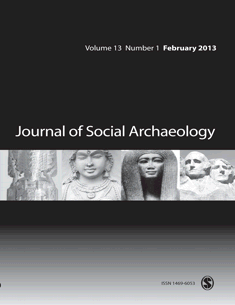
JOURNAL OF SOCIAL ARCHAEOLOGY
Challenging Narratives, Enriching PerspectivesJOURNAL OF SOCIAL ARCHAEOLOGY, published by SAGE Publications Ltd, stands at the forefront of interdisciplinary research where archaeology meets social science. With an ISSN of 1469-6053 and an E-ISSN of 1741-2951, this esteemed journal provides a platform for investigation into the social dimensions of past human behaviors and interactions. Since its inception in 2001, it has garnered substantial recognition, currently ranked in the Q1 quartile in both Archaeology and Arts and Humanities (miscellaneous) categories for 2023, positioning it among the top-tier journals within these fields. Additionally, its Scopus rankings, where it holds a notable placement of #35/354 in Social Sciences and #124/552 in Arts and Humanities, underscore its significant impact, falling within the 90th and 77th percentiles, respectively. The journal aims to foster innovative research that challenges traditional archaeological narratives and enriches our understanding of the social constructs and cultural contexts of the past. Although not open access, JOURNAL OF SOCIAL ARCHAEOLOGY remains an essential resource for scholars, professionals, and students dedicated to unlocking the complexities of human history through a social lens.
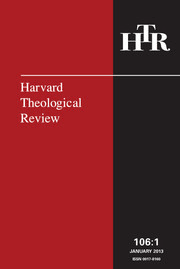
HARVARD THEOLOGICAL REVIEW
Navigating the Landscape of Faith and ThoughtHARVARD THEOLOGICAL REVIEW is a prestigious academic journal that has been a cornerstone of the field of religious studies since its inception in 1908. Published by Cambridge University Press, this journal holds a significant position in scholarly discourse, boasting a 2023 Scopus ranking of #181 out of 644 in the Arts and Humanities category and a commendable Q2 quartile status. With a focus on theological inquiry, the journal serves as a vital platform for both historical and contemporary studies in religion, making it an essential resource for researchers, professionals, and students alike. The HARVARD THEOLOGICAL REVIEW publishes a diverse array of articles, reviews, and essays that contribute to the critical understanding of theological concepts and the interplay of religion in society. Although it does not provide open access options, the journal remains robust in its contributions, fostering a rich dialogue in the field well into 2024 and beyond.
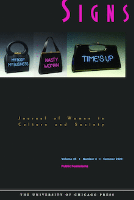
SIGNS
Bridging Disciplines for a Deeper Understanding of Gender.SIGNS, published by the University of Chicago Press, is a leading interdisciplinary journal in the field of Arts and Humanities and Gender Studies, with its ISSN 0097-9740 and E-ISSN 1545-6943. Established in 1979, this esteemed journal has garnered a reputation for its rigorous scholarship, achieving a Q1 ranking in both relevant categories as of 2023. With a significant impact in the realms of social sciences, SIGNS is recognized for its compelling and innovative contributions to understanding gender, identity, and representation in contemporary societies. Researchers and academics are encouraged to submit their work for publication, sharing their insights and advancing discourse across multiple disciplines. Although the journal does not offer open access, its output remains essential for anyone involved in critical gender studies and the arts, as it fosters a vibrant academic community dedicated to evolving thematic concerns and theoretical frameworks.

International Journal on Minority and Group Rights
Exploring the intersection of rights, identity, and community.International Journal on Minority and Group Rights is a distinguished academic journal published by BRILL, focusing on the vital areas of minority rights and group dynamics within the realms of Political Science, International Relations, and Geography. Established in 1993, the journal has continually evolved, offering essential insights and scholarly discussions pertaining to the rights of marginalized communities globally. With a significant impact in its field, it currently holds a Q3 rating in both Geography, Planning and Development and Political Science and International Relations as of 2023, reflecting its commitment to contributing to critical academic dialogues. While it operates under a subscription model, the journal makes a concerted effort to engage academic audiences by publishing high-quality research that addresses contemporary issues related to minority rights and inclusivity. Researchers, students, and professionals are encouraged to explore its enlightening articles that not only assess existing frameworks but also propose innovative approaches for safeguarding minority rights.

Ecclesiology
Illuminating the complexities of contemporary ecclesiology.Ecclesiology is a premier academic journal dedicated to advancing the field of religious studies, with a particular focus on the theological and sociological dimensions of ecclesial life. Published by BRILL, a highly respected publisher known for its rigorous academic standards, this journal plays an important role in fostering scholarly dialogue on ecclesiastical identity, practices, and structures. With an impact factor positioned in the Q3 category of Religious Studies and a Scopus rank of 346 out of 644, Ecclesiology exemplifies quality research that contributes significantly to contemporary discussions within its field. Located in the Netherlands, the journal's reach extends globally, serving researchers, professionals, and students interested in the evolution and challenges of church communities from various cultural and historical perspectives. Since its inception in 2013, Ecclesiology has sought to publish innovative analysis and critical discourse that enhances understanding of ecclesiological concepts, making it an invaluable resource for anyone engaged in religious scholarship.

Acta Neophilologica
Empowering language studies for a global audience.Acta Neophilologica is a prestigious academic journal published by the University of Ljubljana, dedicated to advancing the field of linguistics and language studies. With its commitment to Open Access since 2010, this journal ensures that valuable research is readily accessible to a global audience, fostering innovation and collaboration among researchers, professionals, and students alike. Recognized in the 2023 Quartiles as Q1 in Linguistics and Language, Acta Neophilologica stands out as a premier platform for scholarly contributions that explore various dimensions of language, linguistics, and their societal impacts. The journal is indexed in Scopus, which reinforces its reputation within the academic community, ranking 588 out of 1088 in the Arts and Humanities category and 672 out of 1167 in Social Sciences. Researchers seeking to publish their work in a highly regarded outlet will find Acta Neophilologica a valuable forum for sharing their insights and findings, ensuring that their research reaches an engaged and knowledgeable readership.
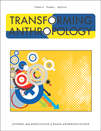
Transforming Anthropology
Exploring the Evolution of Human CultureTransforming Anthropology is a dynamic and influential journal in the field of Anthropology, published by Wiley. With an ISSN of 1051-0559 and an E-ISSN of 1548-7466, this journal has established a reputable position within academic circles, evidenced by its impressive Q2 rating in the 2023 category quartiles and a 77th percentile rank in the Scopus Ranks for Social Sciences. Since its inception, the journal has evolved to reflect contemporary anthropological discourse, addressing crucial issues from diverse perspectives. Although it does not currently operate under an Open Access model, its content remains accessible to a global readership eager to engage with pioneering research. Spanning converged years from 1990 to 1994 and 2010 to 2024, Transforming Anthropology serves as a vital platform for exploring transformative ideas and methodologies within the discipline. Researchers, professionals, and students alike can benefit from the scholarly contributions and insightful discussions fostered within its pages, making it an essential resource for anyone invested in the complexities of human culture and society.
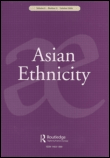
Asian Ethnicity
Fostering dialogue on the dynamics of ethnicity.Asian Ethnicity is a premier academic journal published by Routledge Journals, Taylor & Francis Ltd that serves as an essential platform for interdisciplinary research in the fields of cultural studies, sociology, and political science. With an impressive impact factor and a prestigious ranking within the Scopus database, it has earned a place in the Q1 category for Cultural Studies and the Q2 category for Sociology and Political Science in 2023. This journal not only engages a community of scholars, professionals, and students but also addresses critical issues related to identity, migration, and social dynamics across diverse Asian contexts. The journal has consistently published cutting-edge research since its convergence in 2008, aiming to foster dialogue and understanding in the rapidly evolving landscape of Asian studies, while its location in the United Kingdom enhances its global perspective. While the journal does not currently offer open access options, it remains a valuable resource for in-depth analysis and scholarly discourse regarding Asian ethnicity and its multifaceted implications.